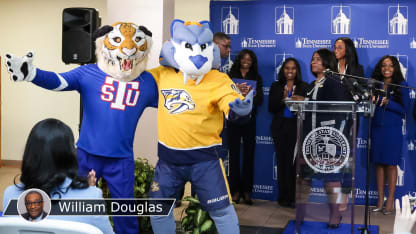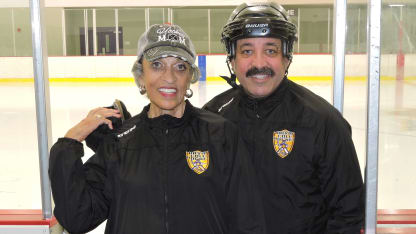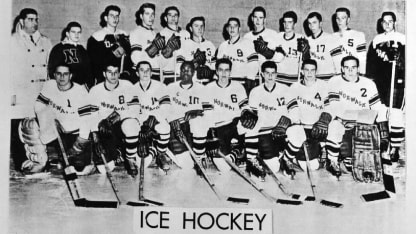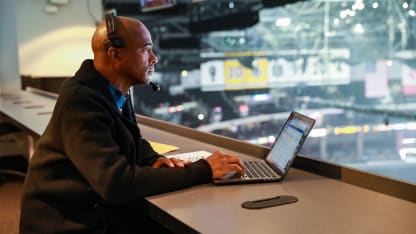Tennessee State University president Glenda Glover received an email recently from a parent whose son wanted to play hockey at one of the United States' Historically Black colleges and universities (HBCU) but was dismayed to learn that none offered the sport.
"She recalled a wide smile on her son's face when he shared an article about TSU looking to start a program," Glover said. "We're already starting to see the hope of the prospect of starting a hockey program at TSU."
The public university in Nashville has received a lot of attention since it announced May 21 that it's exploring becoming the first HBCU to have NCAA Division I men's and women's hockey programs.
A feasibility study, funded by the NHL and NHL Players' Association's Industry Growth Fund, is being conducted to determine what it would take in terms of cost, people power and facilities for the nearly 8,000-student university to join the NCAA hockey ranks.
The outcome of the study is expected in the fall. In the meantime, Glover is busy responding to congratulatory messages on TSU's hockey quest and fielding questions about why a predominantly Black institution is pursuing the sport.
TSU is among the more than 100 colleges and universities in the United States federally designated as HBCUs. They were established before 1964 with the primary mission of educating Black Americans who generally were denied admission to predominantly white schools in the pre-civil rights era.
"Our mission as an institution is to broaden the horizons of our students," Glover said. "This means providing access and exposure to areas they've been traditionally void of participation. So establishing men's and women's hockey teams will continue that growth."
TSU is the latest HBCU to consider or offer so-called "nontraditional sports" for their students. St. Augustine University in Florida launched the first HBCU cycling team last year. Hampton University started a men's lacrosse program in 2016. Howard University, through a donation from NBA star Steph Curry, renewed a golf team it disbanded in the 1970s.
TSU and other HBCUs have tapped into the $1.5 billion esports industry by forming competitive teams, some that compete in an HBCU esports league.
"We're going to have virtual hockey games, so we're recruiting for hockey right now," Glover said. "The world is just changing. Young people's interests are changing.
"There's a growing interest in hockey, so it's very beneficial."
Glover received an encouraging call about hockey from Johnnetta Cole, a friend, mentor and former president of Spelman College and Bennett College, each a private women's HBCU.
She learned something new about Cole through their conversation: that she was a hockey mom to three sons when she taught at the University of Massachusetts-Amherst in the 1970s and '80s.





















